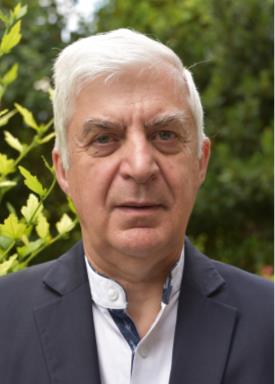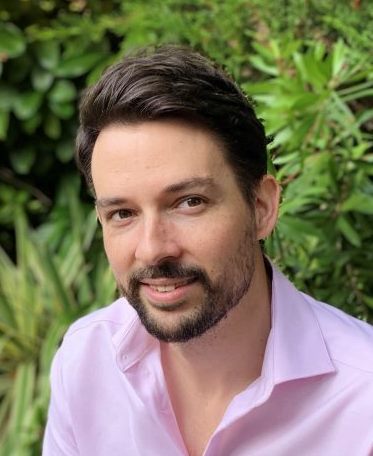
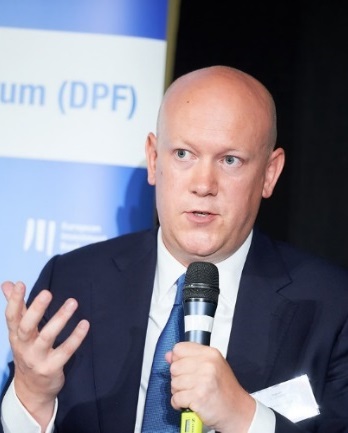 |
Richard Amor is Head of Corporate Lending for the European Investment Bank’s operations in Africa, Caribbean, Pacific, Asia and Latin America. With a focus on projects promoted by private corporate entities, the EIB has its main activity in the energy, ICT, agri-business and global health sectors. Since joining the EIB in 2007, Richard has worked on many landmark renewable energy and infrastructure transactions across Europe, Africa and the Middle East. Prior to joining the EIB, Richard worked for the international law firm Freshfields Bruckhaus Deringer in London, Tokyo and Frankfurt.
|
 |
Ladé Araba is Managing Director, Africa at Convergence. She is a seasoned development finance professional with over 17 years of experience. She previously served as Technical Adviser to the former Minister of Finance of Nigeria and was the Head of the Strategic Monitoring Unit. She was also an Adviser in the Power Sector Team at the Nigeria Infrastructure Advisory Facility (NIAF), a Technical Assistance Program funded by the UK Department for International Development (DFID). Prior to NIAF, Ladé was Technical Adviser to the Executive Secretary of the United Nations Economic Commission for Africa (UNECA) where she advised on the building blocks for financing regional infrastructure projects and promoting intra-African trade. She was formerly a Senior Investment Officer at the African Development Bank, where she played key roles in deal origination and appraisal, and received Board approval for senior loans to several infrastructure projects across Africa.
|
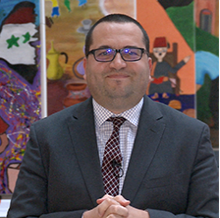 |
Rabah Arezki is the Chief Economist and Vice President, Economic Governance and Knowledge Management, at the African Development Bank Group (AfDB). Prior to joining the AfDB, Rabah was the Chief Economist for Middle East and North Africa Region (MNA) at the World Bank. Mr. Arezki was the Chief of the Commodities Unit in the Research Department at the International Monetary Fund. He also was a senior fellow at Harvard University’s John F. Kennedy School of Government, a non-resident fellow at the Brookings Institution, an external research associate at the University of Oxford, a resource person for the African Economic Research Consortium and a research fellow at the Economic Research Forum. Rabah received his M.S. from the Ecole Nationale de la Statistique et de l’Administration Economique in Paris, M.A. from the University of Paris-1 Pantheon-Sorbonne and Ph.D. in economics from the European University Institute, Florence.
|
 |
Laura Nelima Barasa holds a Ph.D. in Economics from Radboud University Nijmegen, Netherlands. She is a lecturer at the University of Nairobi, School of Economics where she teaches Econometrics, Statistics, and Microeconomics. Her research interests include innovation, gender, agriculture, and governance. Laura also has extensive training in impact evaluation methods from Université Laval, Quebec, Canada. She has investigated the impact of mobile money on bribe payment in enterprises using quasi-experimental methods. She is also developing a proposal to examine how SMS’s based on content can be used to eliminate teen pregnancies in the coastal region of Kenya.Laura has published in leading journals such as Research Policy. She is a certified European Investment Bank-Global Development Network fellow in Applied Development Finance. She is affiliated to the African Economic Research Consortium and to Partnership for Economic Policy, and is also a member of the African Network for Internationalization of Education.
|
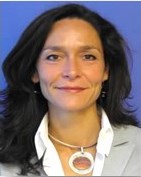 |
Sabine Bernabè is Head of Evaluation at the European Investment Bank. The EIB Evaluation Division produces a wide range of evaluation products, including corporate, thematic, project and impact evaluations on EIB Group activities both inside and outside the EU. Sabine has more than 20 years of experience in evaluation, research, policy and academia. Prior to joining EV, she had a career as an economist in a variety of international organisations, including the EIB, World Bank and UNDP. She holds a PhD from the London School of Economics (UK) and a Masters from Bocconi University (IT) and has various publications encompassing income distribution, poverty and labour market issues in developing and transition countries
|
|
|
François Bourguignon is Emeritus Professor of Economics at the Paris School of Economics and Professor of Economics, L'École des hautes études en sciences sociales. In the past, he has served as the Director of the Paris School of Economics, the Chief Economist and Senior Vice President, the World Bank, Washington (2003-2007) and as the Advisor of the Chief Economist at Banque Mondiale (1999-2000). Dr. Bourguignon was the founder and first Director of Delta, Joint Research Unit Cnrs, Ehess et Ens (1988). He is a Statistician from École nationale de la statistique et de l'administration économique and holds a Ph.D. in Economics from the University of Western Ontario. Dr. Bourguignon also has a DEA Mathématiques appliquées, Université Paris and a Doctorat d'Etat en économie, Université d'Orléans. His fields of research include income distribution, inequality and poverty, redistribution, economic development and he has authored a number of books related to these issues. He has received several awards and merits for his works.
|
|
Edgar Francis Cooke is a lecturer in the Business Department at Ashesi University College in Ghana. He teaches microeconomics, macroeconomics and international trade and policy to undergraduate students in his institution. His principal research interests are in the areas of poverty, inequality, economic growth and international trade. He is also interested in the application of microeconometric and macroeconometric methods and tools in studying interesting research questions in his areas of interest. Cooke received his bachelor's and MPhil degrees in economics from University of Ghana, a masters in international economics, and doctorate from the University of Sussex.
|
|
|
|
Shahrokh Fardoust is a research professor at the Global Research Institute at the College of William and Mary, and a senior independent consultant to international and regional development institutions, including the World Bank, the African Development Bank, the Asian Development Bank, and the European Investment Bank. He has more than 30 years’ experience in crafting economic development policy, analyzing the global economy and prospects, and evaluating development effectiveness of international and regional development institutions. From 2008 to 2011, he was Director of Strategy and Operations, Development Economics, the World Bank, where he contributed to the research and policy priorities of the Chief Economist, the G20’s development agenda, and the quality assurance of the World Bank’s major policy papers and flagship reports. His previous senior positions at the World Bank included Senior Adviser to the Director-General of the Independent Evaluation Group, and Senior Economic Adviser to the Senior Vice President and Chief Economist.
|
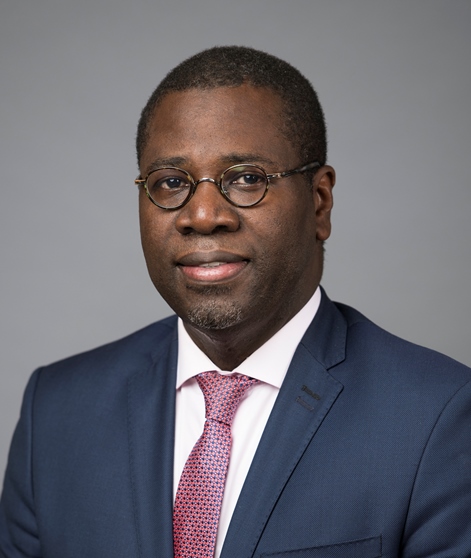 |
Issa Faye is the Director of the Sector Economics and Development Impact Department at IFC. He leads a team of economists in charge of supporting investment teams with rigorous economic analysis and data analytics, underpinning IFC’s operations and strategy. In his role, Issa leads the development and implementation of IFC’s ex-ante impact assessment system, better known as AIMM, or the Anticipated Impact Measurement and Monitoring system. As such, he is responsible for the monitoring, evaluation and reporting of IFC’s investments and advisory services. He also leads engagements with various parts of the World Bank including DEC, the Poverty GP, the Africa Region, Jobs’ Group, as well as work with external stakeholders to strengthen IFC’s toolkit and enable the institution to better understand and create impactful markets in client countries. Prior to joining IFC, Issa was the Acting Director of the African Development Institute and Manager of the Research Division at the African Development Bank (AfDB), where he advised operational teams and delivered economic assessments of all AfDB private sector investment projects, including the projects’ direct and broader development outcome effects. He led the development and implementation of AfDB’s Additionality and Development Outcome Assessment Framework for both private sector and regional operations. Before that, Issa worked as an Economist at the World Bank Group.
|
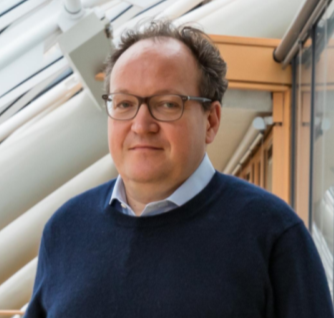 |
Ambroise Fayolle, Vice-President, European Investment Bank
|
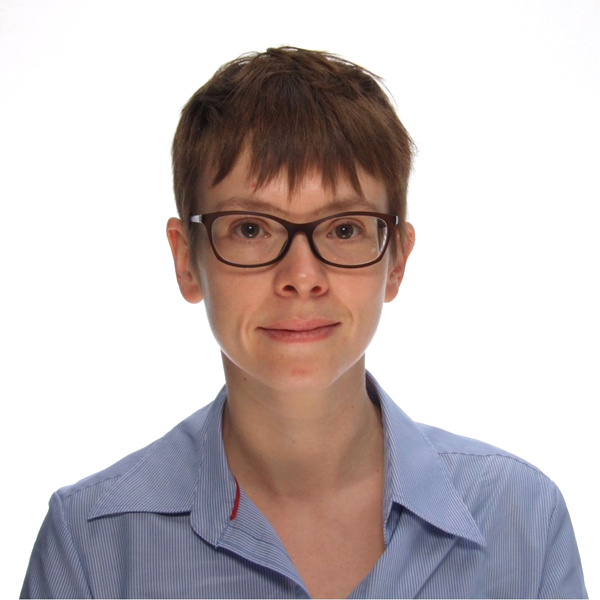 |
Nina Fenton holds a doctorate in economics from the University of Oxford. She has extensive experience in international development, having worked in three of the largest international financial institutions, covering countries in Africa, Asia and Latin America. She joined the EIB’s Economics Department in 2016. Among other tasks, she works on monitoring the development impact of the Bank’s impact finance investments in Africa and the Caribbean and on financial sector development in Africa.
|
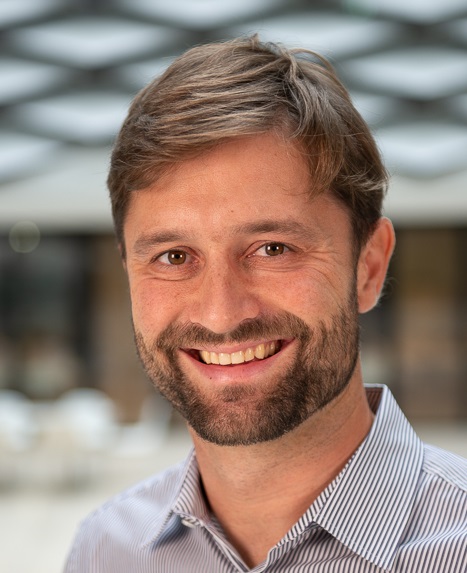 |
Julian Frede is senior manager at DEG’s department for Corporate Strategy and Development Policy. Julian has an academic background in development economics and worked as free-lance consultant in several countries in Sub-Saharan Africa. At DEG, he managed evaluation studies and developed with a colleague the Development Effectiveness Rating (DERa), DEG’s Impact Measurement System. Currently, he is managing DERa and impact services for internal and increasingly external use. Further, he is active as lecturer and freelance consultant on impact management.
|
|
|
Marie Gaarder is the executive director of 3ie, leading the organisation’s efforts to improve lives in low- and middle-income countries by supporting the generation and effective use of high-quality and relevant evidence to inform decision-making. Prior to joining 3ie, she was a manager in the World Bank’s Independent Evaluation Group, overseeing thematic, sector, corporate and project evaluations. She has also worked as the director of the evaluation department at the Norwegian Agency for Development Cooperation, where she was in charge of independent evaluation of programmes and activities financed over the Norwegian aid budget. Prior positions include being the deputy executive director of 3ie during the institution’s start-up years, and a senior social development economist at the Inter-American Development Bank, specialising in social protection and health programs in Central America. Marie holds a PhD in Economics from University College London, an MSc in Economics from London School of Economics and a graduate degree in Political Science, Arabic and Economics from University of Oslo, Norway.
|
|
Karim Harji is an Associate Fellow and Programme Director of the Oxford Impact Measurement Programme at the Said Business School, University of Oxford. He was previously the Co-Chair of the Impact Measurement Task Force convened by the Government of Ontario, a member of the Impact Measurement Working Group of the G8 Social Impact Investment Task Force, and an advisor to the Rockefeller Foundation on social impact measurement.
|
|
|
|
Pierre Jacquet is the fourth president of the Global Development Network (GDN). Formerly chief economist of the French Development Agency (AFD) between 2002 and 2012, he also served as the executive director in charge of strategy from 2002 to 2010. Preceding AFD, he was deputy director of the French Institute on International Relations (IFRI), where he was responsible for the economic program and was chief editor of IFRI's quarterly review Politique Etrangère. From 1994 to 2012, Pierre Jacquet was president of the Department of Economic and Social Sciences and professor of International Economics at the Ecole nationale des Ponts et Chaussées, a renowned French graduate engineering school. He has also lectured in various business schools and universities such as INSEAD, Sciences-Po, the Paris School of Economics (PSE) and Ecole nationale d’ Administration (ENA).
|
 |
Hamidou Jawara is a lecturer at the University of The Gambia and a research associate of the Center for Policy Research and Strategic Studies in The Gambia. His research interest is in the area of financial inclusion, development economics, and impact assessment and evaluation. In the area of financial inclusion, his work is focused on understanding loan repayment behavior in microfinance programs like group lending schemes. His other research interest includes digitalization and revenue mobilization, migration, and political economics as well as maternal and child health. In the past few years, he has worked as a consultant for several organizations including the World Bank, International Trade Center, International Organization for Migration, as well as ministries in the Gambia. Hamidou has a M.Sc. degree in Political Economics from the University of Rome (Italy) and PhD degree in Quantitative Economics from the University of Kiel (Germany).
|
|
|
Emmanuel (Manny) Jimenez is Senior Fellow and former Executive Director of the International Initiative on Impact Evaluation (3ie). He came to 3ie early in 2015 after many years at the World Bank Group where he provided technical expertise and strategic leadership in a number of research and operational positions including as director of the bank’s operational program in human development in its Asia regions from 2000-2012. Before joining the bank, Dr Jimenez was on the economics faculty at the University of Western Ontario in London, Canada. He received his Ph.D. from Brown University.
|
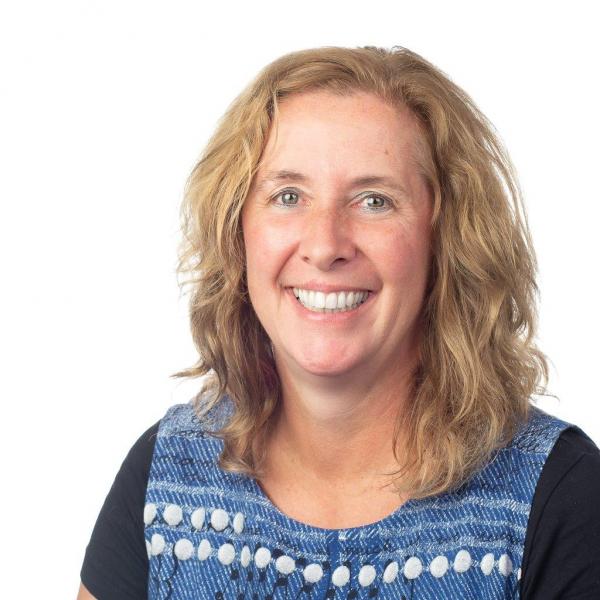 |
Cecile Kusters works at the Wageningen Centre for Development Innovation (WCDI), Wageningen University & Research (Netherlands) as Senior Advisor Planning, Monitoring and Evaluation (PME). She has expertise in theory-based, mixed methods evaluations; strategic design (including Theories of Change); M&E system development; PME capacity development and organisational change processes in multi-stakeholder initiatives. Cecile has experience in various sector transformation programs, by helping to develop planning and M&E processes that support adaptive management towards impact, in the context of inclusive and sustainable food systems for healthy diets. She has also led various evaluations.
|
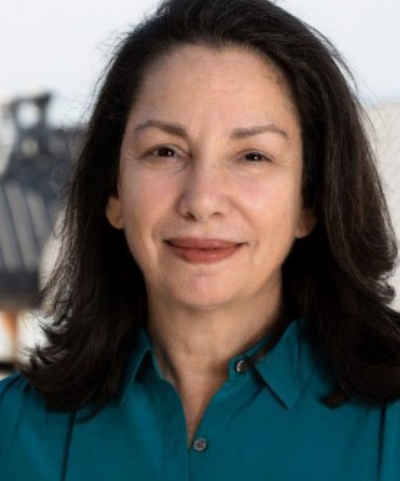 |
Nancy Lee is a senior policy fellow at the Center for Global Development and a senior advisor at the Center for Strategic and International Studies. Her work at CGD focuses on the role of development institutions (DFIs) in mobilizing private finance and driving development impact. She has recently also written on the gender policies and focus of DFIs and on strengthening the architecture for sovereign debt relief for poor countries. Previously, she was the deputy chief executive officer of the Millennium Challenge Corporation (MCC), an innovative, independent US aid agency that fights poverty through country compacts that support inclusive growth. Prior to joining MCC, Dr. Lee was the general manager (CEO) of the Multilateral Investment Fund (now the IDB Lab) at the Inter-American Development Bank, a key impact investor in the region. She has also served in the U.S. Treasury Department.She holds a PhD and an MA in economics from Tufts University and a BA in economics from Wellesley College.
|
|
|
Arianna Legovini built and leads the Development Impact Evaluation (DIME) group of the World Bank. The purpose of this unit is to use research to improve development practice and policy outcomes. Since joining the Bank in 2004, she has worked to understand and develop the institutions (incentives and processes) required to engage researchers, operational staff and policymakers in improving the quality in the design and implementation of development projects. In 2004-2008, working with like-minded partners, the ideas were put in action with the creation of the Africa Impact Evaluation initiative and its programs in education, HIV, malaria, community development, agriculture and private sector. In 2009, she imported Africa-grown lessons, processes and programs into the global impact evaluation program. By 2013, with core funding from UK Aid, she designed i2i (impact evaluation to development impact) to support the expansion of the approach across many institutional partners and across under-evaluated sectors representing the majority of development aid, including infrastructure, fragility and conflict, public sector governance, and natural resource management sectors.
|
 |
Kelly McCarthy is a Director at the GIIN focusing on IRIS standards and impact measurement. She manages strategic partnerships and adoption among investors and other standards-setting bodies, and the GIIN's work to bring practical impact measurement guidance and infrastructure to the impact investment industry. Prior to joining the GIIN, Kelly was the Global Impact Officer for New Ventures at the World Resources Institute, where she worked to build an impact measurement program for New Ventures' global operations. She holds a BA in Conservation Biology and Environmental Studies from University of Wisconsin-Madison.
|
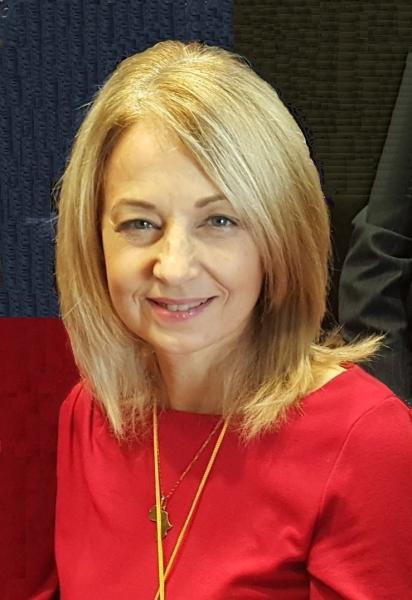 |
Zenda Ofir a South African evaluator and scientist who works on the intersection of evaluation, development and science. She has conducted many evaluation assignments around the world across areas and sectors, and from local to global level. She has a special focus on the Global South, in particular Africa and Asia, and a special interest in societies’ dispositions to change, the relationship between humanity and nature, and the role of evaluation in urgently-needed transformations. A former President of the African Evaluation Association (AfrEA), Vice-President of the International Organisation for Cooperation in Evaluation (IOCE) and Board member of the American Evaluation Association (AEA), Zenda is at present Vice-President of the International Development Evaluation Association (IDEAS), a Lead Steward in the SDG Transformations Forum, and Interim Chair of the Council of the International Evaluation Academy (IEAc). Zenda has a PhD in (Ecological/Analytical) Chemistry.
|
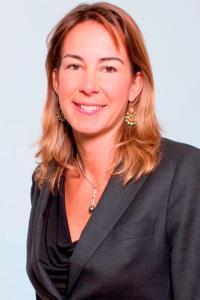 |
Debora Revoltella is Director of the Economics Department of the European Investment Bank, which is in charge of the sovereign and financial sector rating models for the EIB as well as of providing financial sector expertise in EIB projects. It is also responsible for assessing the impact of EIB activities and the results generated by EIB financed projects. Her experience includes Adjunct Professor in Macroeconomics at Bocconi University, a research role at Banca Commerciale Italiana, Chief Economist for Central and Eastern Europe at UniCredit. Debora Revoltella is member of the Steering Committees of the Vienna Initiative and the CompNet, an alternate member of the Board of the Joint Vienna Institute and a member of the Boards of the SUERF and the Euro 50 Group. She holds a degree in Economics and a Master in Economics from Bocconi University as well as a PhD in Economics from the University of Ancona in Italy.
|
|
|
Matt Ripley is a specialist advisor in impact management strategies and systems. He has an impressive track record in supporting investors and enterprises to improve their social outcomes, while simultaneously driving core business value.Matt leads on The Good Economy’s impact measurement services, working with clients to use impact data to drive improved decision-making and reporting. He has a specialist focus on SME funds and businesses. He also leads on our work in emerging and frontier markets. Matt has published influential papers, books and blogs for publications including the Stanford Social Innovation Review, covering areas including responsible investment, sustainable supply chains and stakeholder value.
|
 |
Alexandros (Alexander) Sarris from 1982 to 2015 was professor in the department of economics, University of Athens, Greece. Since 2015 he is emeritus professor. During 2003-2010 he was Director of Trade and Markets at the UN Food and Agriculture Organization, and during 1976-1982 was assistant professor at the University of California, Berkeley, USA. He holds a PhD in economics from the Massachusetts Institute of Technology, USA. He has authored more than 15 books and monographs, and more than 70 journal and book articles on international trade and development, has received several Awards, and has served in the editorial boards of several journals. He has advised extensively many national and international organizations, and has field research and policy advice experience in over 20 countries
|
 |
Jean-Michel Severino succeeded Patrice Hoppenot in May 2011 as CEO of Investisseurs et Partenaires (I&P), an impact investing and private equity firm, which focuses on small and medium-sized enterprises and microfinance institutions in Africa. Prior to I&P, Mr. Severino served as Vice-President for Asia at the World Bank (1997-2001) and as Director General of the French Development Agency (2001-2010). Mr. Severino chairs the board of Ecobank International. He serves as chair of the audit committee for Danone’s board and is a member of its corporate social responsibility committee. He is also a member of the board of Orange (France Telecom). Mr. Severino graduated from the Ecole Supérieure de Commerce de Paris and the Sorbonne University (degree in Law). He then entered the Institut d’Etudes Politiques and the Ecole Nationale d’Administration, from which he graduated in 1984. |
|
|
Soazic Elise Wang Sonne is a Young Professional (YP) with the Social Sustainability and Inclusion (Social Development) Global Practice of the World Bank Group in Washington DC. She is currently undertaking a development assignment with the Health, Nutrition and Population department. From July 2018 till June 2019, she was a UK-DFID Young Scholar/ World Bank Africa Fellow with the Fragility, Conflict and Violence Group (FCV). She holds a double engineering degree in statistics and applied economics ("Ingenieur Statisticien Economiste") under ENSAE-Paris/CAPESA and a Msc in project evaluation and sustainable development from the University of Rennes I (France) funded by the Cameroon UK Chevening Scholarship. She is a PhD fellow from the United Nations University (UNU-MERIT) in Maastricht, The Netherlands. She is also an MBA candidate at Imperial College London Business School where she received the Imperial College London Women’s excellence scholarship. Her main research interests is on the intersection of applied development impact evaluation in conflict and fragile settings using quantitative data.
|
 |
Søren Peter Andreasen is Chief Executive Officer of EDFI. Before joining EDFI in 2016, Søren worked for 15 years in the consulting industry with a specialisation in development, finance, and investment in emerging markets. Søren holds a master’s degree in public policy from Harvard University. He started his professional career with the United Nations (UN) Secretariat in New York before he joined McKinsey & Company in Copenhagen and subsequently co-founded the consulting firm Dalberg Global Development Advisors.
|
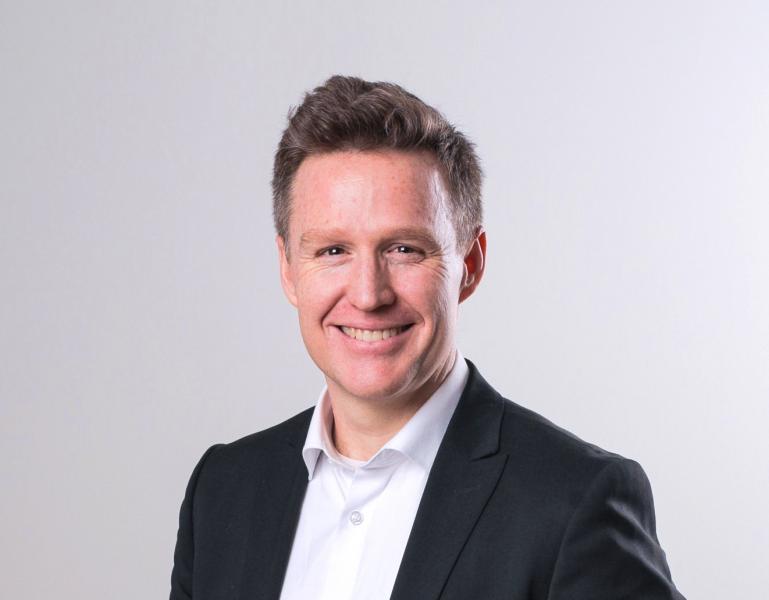 |
Sean Turnbull is Chief Impact Officer, Impact and Innovative Finance Bureau, Global Affairs Canada for the new International Assistance Innovation Program ($900M) and Sovereign Loans Program ($620M). He is building the policies and tools that will enable the programs to model, monitor, and evaluate their development impact alongside their financial viability. Prior to this, he held positions supporting government-wide capacity to carry out rigorous experiments and impact measurement, and developing department-wide tools for innovative policy instruments. He began his career as a public servant working on the social finance and social innovation file. Sean was awarded a Masters in International Development from the University of Guelph, where his thesis explored international currency markets and their potential role in development financing. He also holds a Graduate Diploma in Social Innovation from the University of Waterloo. His passion for learning about peoples and cultures has led him to live, study and work abroad, primarily in Ghana and China.
|
 |
Gloria Uwingabiye has several years of diverse international experience in a career spanning the private, not-for-profit, academic, and international sectors. As an EIB-GDN Fellow, her experience has encompassed working alongside the EIB’s Results Measurement (ReM) team to deliver on the EIB’s impact strategy across its operations in ACP countries , focusing primarily on Côte d'Ivoire. As a Senior professional at ICF Sa, she is currently involved in complex projects, including the assessment and evaluation of economic and financial policies of International organizations. Previously , she worked as a Manager at AIMS, supporting breakthrough solutions to global development challenges from Science and Research, across a diverse range of areas. She has also gained experience through a broad range of engagements in the academic sector, including PHD research with UCL (UK), and she is former Banker at Deutsche Bank and ING Belgium. Gloria holds a Postgraduate Degree in Policy analysis & Research from UCL (UK) and two Master’s degrees in Finance (Belgium).
|
|
Howard White is the chief executive officer of Campbell Collaboration. He was previously the founding executive director of the International Initiative for Impact Evaluation (3ie) and has led the impact evaluation program of the World Bank's Independent Evaluation Group. He started his career as an academic researcher at the Institute of Social Studies in The Hague, and the Institute of Development Studies, University of Sussex. As an academic, he leans towards work with policy relevance and working in the policy field believes in academic rigor as the basis for policy and practice.
|
|
|
|
Eleni Yitbarek is a Postdoctoral Research Fellow at the University of Pretoria, South Africa. Prior to that, she obtained her Ph.D. from Maastricht University in Economics. She had also received a Master’s from Maastricht University in Public Policy and Human Development, specializing in social policy financing. Since an early age, Eleni has a keen interest in economic development, particularly in the role social and economic policies play in it. She is particularly interested in questions such as: why some people remain poor while others become prosperous? What drives social mobility in developing countries? In her relatively young academic career, Eleni is making a contribution to applied research in poverty dynamics, socioeconomic effects of idiosyncratic and transient shocks, and gender-based social mobility in the context of Africa. She hopes one day her research will have a significant and concrete contribution towards informed policy making that aims to improve the lives of the poor. |
Concept | Program | Speakers | Key Takeaways | Recordings, Presentations and Resources | More about the EIB-GDN program




